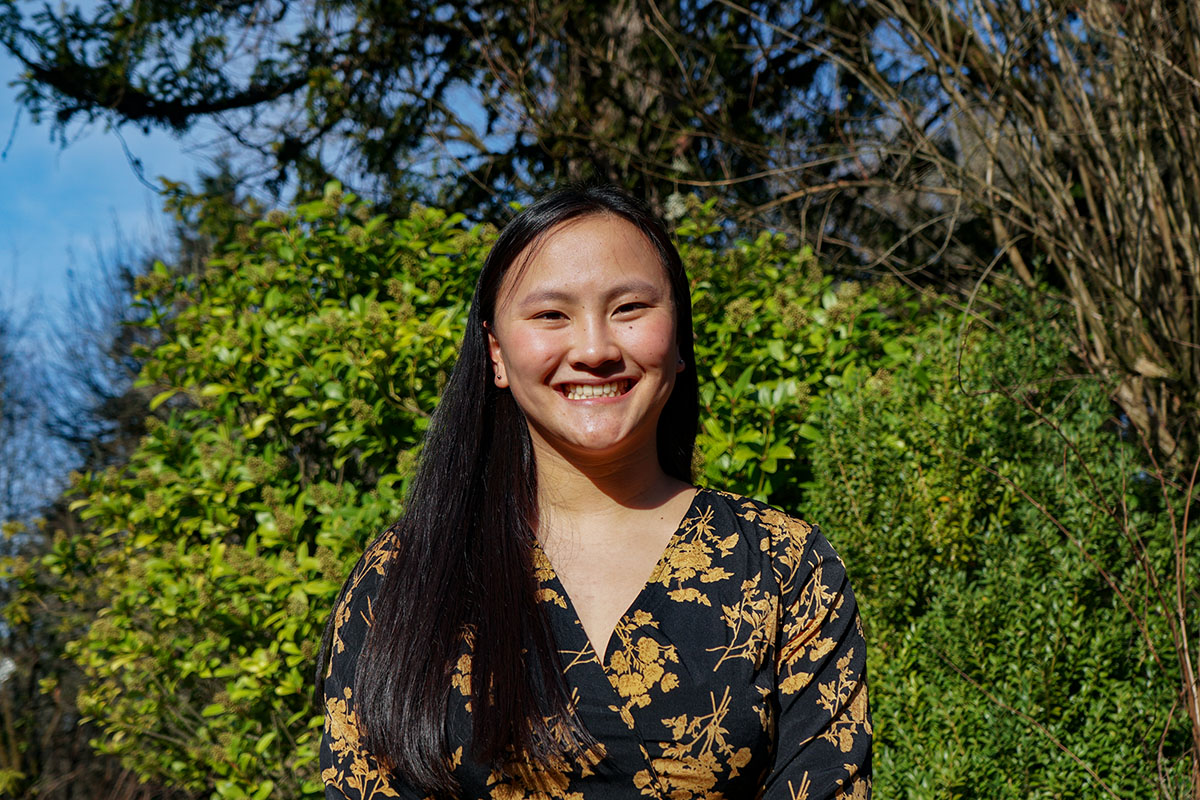
Sabrina Murray: Working toward diversity, equity and inclusion in higher ed
Sabrina Murray is used to getting questions about her race and adoption. Murray, who is Chinese, was adopted by white parents, making her a transracial adoptee (TRA).
“Strangers will often ask me questions about my birth family and why I was adopted,” she says. “Because I am a Chinese adoptee, I also get questions about my race and sense of belonging in a white family and my understanding of Chinese culture.”
Murray grew up near Tacoma, Washington and went to Lewis & Clark College, a small, private, liberal arts college in Portland, Oregon, where she studied sociology and anthropology. It was at Lewis & Clark that Murray started to get interested in working in higher education. She was inspired by her mentor at the college’s Office of Inclusion and Multicultural Engagement (IME), where she worked as a peer education coordinator.
“I was originally involved with IME as a mentee in a mentorship program for first-year students of color or first-generation students,” Murray says. “Then, as peer education coordinator I helped organize events for students on campus, did some public speaking and networking with faculty and students. It gave me a real sense of community and taught me so many skills.”
After earning her bachelor’s degree in 2021, Murray came to the University of Maine to pursue a master’s in student development in higher education. She wanted to explore ways to support diversity and inclusion on college campuses, and UMaine’s program offered a welcoming and supportive atmosphere to do just that.
“I like that it is a smaller program, where you can get to know the other students and your professors really well. It’s been a very caring and collaborative experience,” says Murray, who just earned her M.Ed.
Another attractive aspect of the program was the required internship, which is designed to give early-career higher education professionals hands-on experience and networking opportunities. Murray did her internship at Central Maine Community College in Auburn, where she worked on diversity, equity and inclusion initiatives.
“It was so rewarding, shaping their DEI efforts and building a sense of belonging for all students and members of the college community,” she says.
During her time at UMaine, Murray also worked in Residence Life as an assistant community coordinator, as an intern in the Office for Diversity and Inclusion, with Academic Support Services for Student-Athletes, and in the Office of Community Standards, Rights and Responsibilities. She was a co-recipient of the student development in higher education program’s 2023 Social Justice in Higher Education Award.
Before she graduated, Murray also was able to publish her first academic work, a chapter titled “Evolution of a Transracial Adoptee” in an e-book “Transracial Adoptee and Multiracial Perspectives: Navigating Higher Education Spaces as our Authentic Selves” published by the Transracial Adoptee and Multiracial Knowledge Community of NASPA, the National Association of Student Personnel Administrators. The chapter explores Murray’s own TRA identity development and ways to better support TRA college students.
“There’s been a lot written for and about biracial or multiracial identity, and that’s great. What I’m hoping to see is more representation of TRA in academia, whether that means more TRA student affairs professionals or more TRA identity development models in textbooks,” Murray says.
Murray is headed back to the Pacific Northwest to work at Reed College as a program coordinator in the Office of Student Engagement. She says she is excited that Reed is working to become an antiracist institution and that all members of the college’s student life leadership team are people of color. She says Maine will always hold a special place in her heart as she continues her career and life journeys.
“The past two years in grad school helped develop my sense of personal and professional identity,” she says. “I will always remember UMaine as a place of growth and with gratitude.”
Contact: Casey Kelly, casey.kelly@maine.edu
